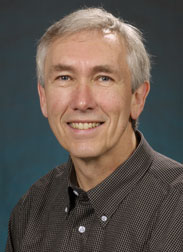Faculty A-Z

Dale Corbett
Professor of Physiology (Neurosciences) B.A. Dalhousie, M.Sc. Memorial, Ph.D. ConcordiaAdjunct
(709) 777-6748
Email:
corbett@mun.ca
Address:
Professor of Neurosciences Canada Research Chair in Stroke and Neuroplasticity Division of BioMedical Sciences Faculty of Medicine Memorial University, 300 Prince Philip Drive, St. John's, NL Canada A1B 3V6
Click here to view Dr. Corbett's webpage at the University of Ottawa.
Stroke is a devastating disorder that strikes ~50,000 Canadians per year. While most patients survive stroke many are left with life long disabilities making stroke the leading cause of permanent disability. There are few options for treatment of acute stroke. Restoration of blood flow with clot dissolving drugs has produced impressive benefit in some patients. However, these drugs must be given soon after stroke onset to be effective and relatively few stroke patients reach hospital within this time. Side effects of these compounds further limit their use.
Enhancing the brain's capacity for self-repair may offer the most promise for stroke victims. Indeed, many stroke patients frequently show considerable spontaneous functional improvement. Recent findings suggest that stroke and related injury create a cerebral milieu similar to that of early brain development, a period characterized by rapid neuronal growth and neuroplasticity. My approach is to identify and then optimally engage neuroplasticity/re-organizational processes that are important for recovery of function. Much of our research has been inspired from questions arising from the clinic: For example, does the intensity of rehabilitation matter with respect to recovery after stroke? Does the timing (i.e. delay to treatment) of rehabilitation affect functional outcome? These questions have been investigated using clinically relevant animal models of stroke and results from these studies are being incorporated into current stroke rehabilitation practice.
In other studies we are transplanting stem cells into animals that have experienced stroke. The goal is to encourage transplanted and/or endogenous stem cells to migrate to the site of injury and repopulate damaged brain region or to reorganize remaining circuitry to take over functions lost following the stroke. Interestingly, environmental enrichment appears to augment stem cell survival and migration.
Inflammation following stroke persists for days or weeks and activated microglia can release inflammatory cytokines and free radicals that can damage healthy neurons. Since the inflammatory response is relatively delayed we are interested in examining anti-inflammatory agents for potential as neuroprotectants to enhance cell survival and recovery of function.
Our research also focuses on lifestyle interventions such as diet, physical activity and cognitive activity as having potential therapeutic benefit in the context of stroke and developing vascular compromise. In our studies we examine how lifestyle interventions may attenuate the behavioural deficits and neuropathological alterations that accompany these disorders.
Research support:
CIHR; Canada Research Chairs Program; Canadian Stroke Network, National Centres of Excellence Program; the Heart and Stroke Foundation of Canada; the Heart and Stroke Foundation of New Brunswick, Alzheimer's Society of Canada and Pfizer Canada
Current Trainees:
- Crystal MacLellan (PDF) 2006-
- Jared Clarke (PhD) 2003-
- Kris Langdon (PhD) 2006-
- Krista Hewlett (MD/PHD) 2007-
Current Visiting Students:
- Anna Hicks (PhD University of Kuopio, Finland)
- Hana Mala (PhD University of Copenhagen, Denmark)
Former Students:
- Michelle Ploughman (PhD 2006)
- Victoria Windle (PhD 2006)
- David Laidley (MSc 2005)
- Aleksandra Szymanska (MSc 2005)
- Jeff Biernaskie (PhD 2003)
- Rosemarie Farrell (MSc 2001)
- Tina Giles (MSc 2001)
- Jennifer Dowden (PhD 1999)
Selected Publications
PubMed: Copy and past the following bolded text into the PubMed Search box
"Corbett D"[Author] AND Memorial University[Affiliation]
1. Ploughman, M., Attwood, Z., White, N., Doré, J. E. and Corbett, D. Endurance exercise facilitates relearning of forelimb motor skill after focal ischemia, Eur. J. Neurosci., 2007, 25, 3453-3460.
2. Ploughman, M., Granter-Button, S., Chernenko, G., Attwood, Z., Tucker, B.A., Mearow, K.M., and Corbett, D. Effects of acute exercise on growth factors involved in neuronal plasticity following focal ischemia, Brain Res., 2007, 1150, 207-216.
3. Clarke, J., Ploughman, M. and Corbett, D. A qualitative and quantitative analysis of skilled forelimb reaching impairment following intracerebral hemorrhage in rats, 2007, Brain Res., 2007, 1145, 204-212.
4. Hicks, A. U., Hewlett, K., Windle, V., Chernenko, G., Ploughman, M., Jolkkonen, J., Weiss, S. and Corbett, D. Enriched environment enhances transplanted SVZ stem cell survival, migration and functional recovery after stroke, Neurosci., 2007, 136, 31-40.
5. Corbett, D., Giles, T., Evans, S. McLean, J. and Biernaskie, J. Dynamic changes in CA1 dendritic spines associated with ischemic tolerance, Exper. Neurol., 2006, 202, 133-138.
6. Windle, V., Szymanska, A., Granter-Button, S., White, C., Buist, R., Peeling, J. and Corbett, D. An analysis of four different methods of producing focal cerebral ischemia with endothelin-1 in the rat, Exper Neurol., 2006, 201, 324-334.
7. Hewlett, K. and Corbett, D. Delayed minocycline treatment reduces long-term functional deficits and histological injury in a rodent model of focal ischemia, Neurosci., 2006, 141, 27-33.
8. Ploughman, M., Granter-Button, S., Cherenko, G., Tucker, B. A., Mearow, K. M. and Corbett, D. Endurance exercise regimens induce differential effects on BDNF, Synapsin-1 and IGF-1 after focal ischemia, Neuroscience, 2005, 136, 991-1001.
9. Biernaskie, J. Syzmanska, A., Windle, V. and Corbett, D. Bihemispheric contribution to compensatory functional gains of the affected forelimb following focal ischemic injury, Eur. J. Neurosci., 2005, 21, 989-999.
10. Ploughman, M. and Corbett, D. Can forced-use therapy be clinically applied following stroke? An exploratory randomized controlled trial, Arch. Phys. Med. and Rehabilitation, 2004, 85, 1417-1423.
11. Biernaskie, J., Chernenko, G and Corbett, D. Efficacy of rehabilitative experience declines with time following focal ischemic brain injury, J. Neurosci., 2004, 24, 1245-1254.